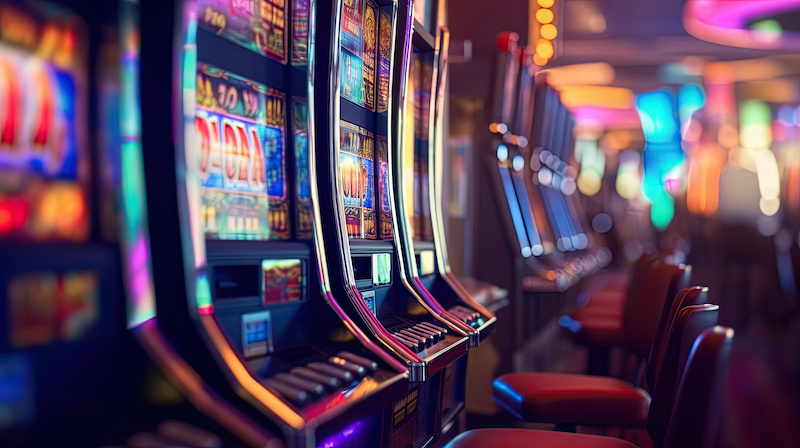Every time I revisit the story of Katrina Bookman, one question won’t leave me: what happened to Katrina Bookman when a slot machine told her she was rich and the rules said she wasn’t?
This isn’t a throwaway casino anecdote. It’s about hope, power, and how one line of fine print can wipe out what you see on a blazing slot machine screen.
Table of Contents
- Slot Machine Malfunction? The Moment The Screen Lit Up
- What Happened To Katrina Bookman At Resorts World Casino?
- The Legal Battle: Did Katrina Bookman Stand A Chance?
- The Rule, The New York Gaming Commission And The $43M That Vanished
- Why Katrina Bookman’s Story Still Resonates With Slot Players
- Key Facts From The Katrina Bookman Case
- What Katrina Bookman’s Case Teaches Slot Players About Casino Rules
Slot Machine Malfunction? The Moment The Screen Lit Up
In August 2016, Katrina Bookman walked into Resorts World Casino in Queens, New York, as an unemployed mother of four, hoping for a brief escape and maybe a small win. She sat at the Sphinx Wild penny slot and bet 40cents a spin – the kind of stake that usually buys a few quiet minutes, not a fortune.
Then the screen erupted with numbers.
The display showed $42,949,672.76. Lights flashed. Staff and players stared. In that moment, it didn’t feel like a blip; it felt like she’d just landed the biggest slot jackpot in American history. She took a selfie with the screen, her smile caught between shock and pure joy.
The excitement didn’t fade after a few seconds. For the rest of that evening, and all through the night as she waited to go back the next day, Katrina lived with the idea that the number on that screen might really be hers.
The Sphinx Wild slot was a penny machine with a max payout of about $6,500, according to the manufacturer’s specs. Katrina didn’t know that. Later, that small detail sat at the center of the claimed slot machine malfunction.
In her mind, years of scraping by suddenly dropped away. She pictured opening a barber shop for her son, helping her wider family, finally breathing instead of just surviving.
If this article interests you, keep reading. Alternatively, explore other topics like how to play roulette and best craps strategy.

What Happened To Katrina Bookman At Resorts World Casino?
As the giant number sat on the screen, staff and other players crowded around the machine. Security escorted Katrina off the gaming floor and told her to come back the next day while they “checked” the result. For the casino, it was routine. For Katrina, it felt like the pause before a completely new life.
When she returned the following day, reality snapped back. A staff member told her, bluntly, that she hadn’t won anything. The ticket printed by the slot showed a balance of just $2.25.
Instead of millions, the casino offered her a steak dinner and that tiny sum on the ticket. She refused the meal and walked out with the $2.25 and the cold realization that this casino payout dispute wasn’t going to be settled by common sense or sympathy. The house didn’t just hold her money; it held the power to decide how that “win” would be treated.
The Legal Battle: Did Katrina Bookman Stand A Chance?
Katrina didn’t accept the explanation. Attorney Alan Ripka went on to represent her in a lawsuit against Resorts World Casino, its parent company, and the slot manufacturer. They asked for the full $42.9 million, or at least the $6,500 maximum payout.
His argument was simple: the machine takes your money when you lose; it should pay when it says you win. From the outside, it looked like a classic showdown between one player and a system built to protect the house.
The case dragged on for years, slowed by legal process and then by the pandemic, until it reached Queens County Supreme Court. There, the legal answer to what happened to Katrina Bookman was codified: the court upheld the casino’s immunity under malfunction clauses, extinguishing any claim to the displayed jackpot.
The judge dismissed the case, ruling in favor of the casino and the manufacturer. The court accepted that the apparent jackpot was a slot jackpot error – a malfunction – and that the game’s terms allowed the casino to void the “win”.
Financially, that dismissal meant Katrina didn’t get $43 million. She didn’t get $6,500. She walked away with nothing more than the original $2.25.
The Rule, The New York Gaming Commission And The $43M That Vanished
At the center of everything sits one short line of text. Most slot players never read it, but both the casino and the New York Gaming Commission leaned on it hard:
“Malfunctions void all pays and plays.”
From the regulator’s point of view, that clause protects casinos from any genuine error – the kind of glitch that would push a game outside its approved math model. A penny slot with a $6,500 cap can’t suddenly start paying $43 million, no matter what the screen says.
On paper, the logic’s tidy. From the player’s side of the screen, it feels brutally one-sided. The casino decides when a result is treated as a real outcome and when it’s written off as a glitch. The player’s expected to accept that the rules only really appear when something big goes wrong.
Katrina’s story isn’t unique, either. Similar disputes have surfaced in other states, where players were denied huge payouts after investigators said the machines had produced errors, not genuine wins. Different venues, same pattern.

Why Katrina Bookman’s Story Still Resonates With Slot Players
So, what happened to Katrina Bookman that night – and what does it really tell us about gambling?
On the surface, a machine displayed the wrong number, regulators backed the casino, and a lawsuit was dismissed. But that’s not why people still search her name.
Her case shows how fragile trust is in gambling. Slot machines and online games are black boxes of code and math. Ordinary players can’t audit every spin. They have to trust the casino, the regulator, and rules they’ve never really studied – including the fact that some penny slots, like Sphinx Wild, aren’t linked to any massive progressive jackpot and simply can’t pay life-changing sums, no matter what flashes up.
When that system misfires, it’s people like Katrina who pay the price. Her 40-cent spin became a lesson in how quickly a life-changing moment can be cancelled by a single clause and a decision made in a boardroom or a courtroom.
Key Facts From The Katrina Bookman Case
- Displayed win on screen: $42,949,672.76
- Actual recorded payout: $2.25
- Machine maximum payout: about $6,500
- Game played: Sphinx Wild penny slot
- Location: Resorts World Casino, Queens, New York
- Date: August 2016
What Katrina Bookman’s Case Teaches Slot Players About Casino Rules
For me, Katrina Bookman’s case isn’t about pretending the casino could magically pay a $43 million prize on a machine designed to max out at $6,500. It’s about how the house edge, the rules, and the slot technology together decide which outcomes are honored and which are erased as errors.
The story also shows how little control the player has over that line. That’s something every player should remember before they sit down to play and use their own slot strategy.


